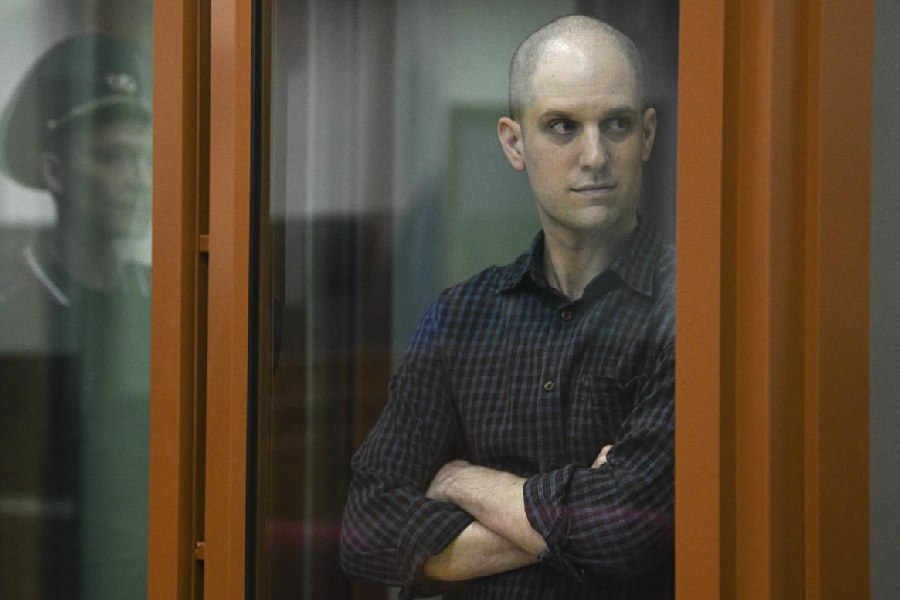In his nearly 15 months in Moscow’s infamous Lefortovo prison, Evan Gershkovich has ploughed through Russian literary classics like War and Peace, and played slow-moving chess by mail with his father in the US. He tries to keep himself in shape during the hour-long exercise period he is permitted each day.
Friends who correspond with him describe Gershkovich, a Wall Street Journal reporter, as positive, strong and rarely discouraged, despite facing the official wrath of President Vladimir Putin’s Russia.
“He may have ups and downs like everyone else, but he remains confident in himself, in his rightness,” said Maria Borzunova, a Russian journalist and a friend of Gershkovich.
Gershkovich went on trial on Wednesday, facing up to 20 years in prison on an espionage charge that he, his employer and the US state department vehemently deny.
He appeared in a court in the major industrial city of Yekaterinburg east of Moscow, where he was originally detained and where he was transferred recently after more than a year of imprisonment in Moscow.
Shortly before the proceedings started, journalists filmed Gershkovich, with his head recently shaved, standing in a glass cage in the courtroom. After several hours, the court scheduled the next session in the case for August 13, according to the Russian state news agency Tass.
At the heart of Gershkovich’s ordeal is a void — the absence of any evidence made public by Russian authorities to support their claim that he was a spy. Nor is any likely to emerge from his trial, which has been declared secret, with any observers barred from attending, and his lawyers prohibited from publicly revealing anything they learn.
“We think that it is a sham trial based on fake charges, therefore the proceedings will be farcical,” Almar Latour, the publisher of The Wall Street Journal, said. It is impossible to predict how a trial will affect efforts to obtain Gershkovich’s release, he added.
In a statement on Wednesday, the US embassy in Moscow said officials were at the courthouse and given brief access before the proceedings began. “We have been clear from the start that Evan has done nothing wrong and never should have been arrested in the first place,” the statement said. It called for his immediate release.
In Russian trials, conviction is largely a foregone conclusion, especially when — as in this case — the Kremlin has weighed in. The judge hearing the case has boasted to a local news outlet that in a career spanning decades, he has acquitted just four defendants.
For more than five years, Gershkovich, a US citizen who grew up in New Jersey, roamed Russia as a reporter, growing to love the country, friends say. The foreign ministry repeatedly reissued his reporting credentials.
Now he may be Kremlin fodder for a prisoner swap, as other imprisoned Americans have been recently. In hammering out such an exchange, Russia insists that first a trial must be completed, ostensibly putting both sides on equal legal footing.
“He’s a Kremlin chip, and they want to trade him,” said Pjotr Sauer, a reporter for The Guardian newspaper and a close friend of Gershkovich.
New York Times News Service










